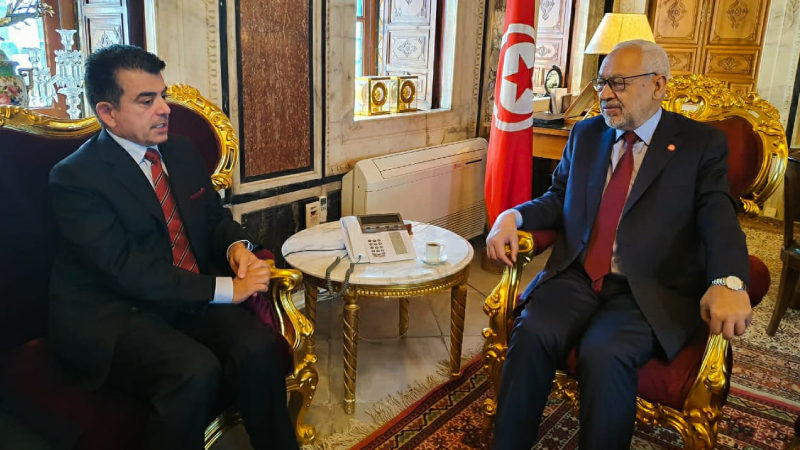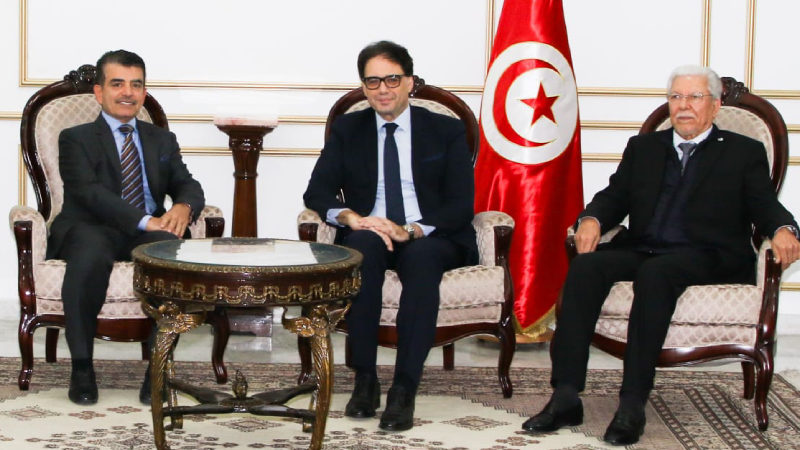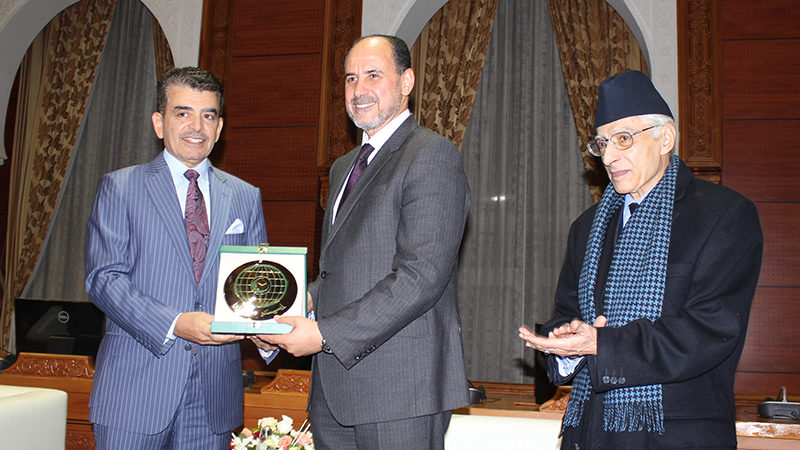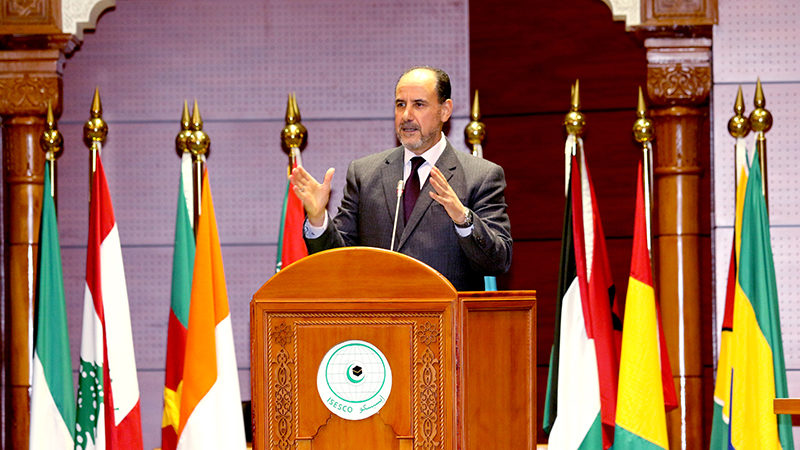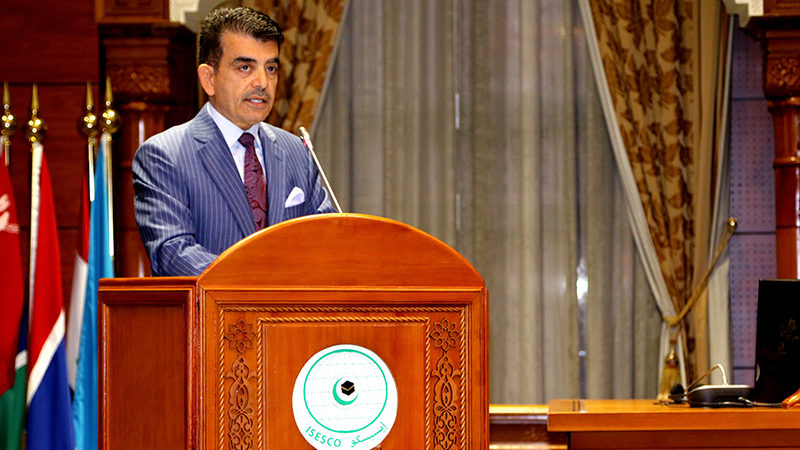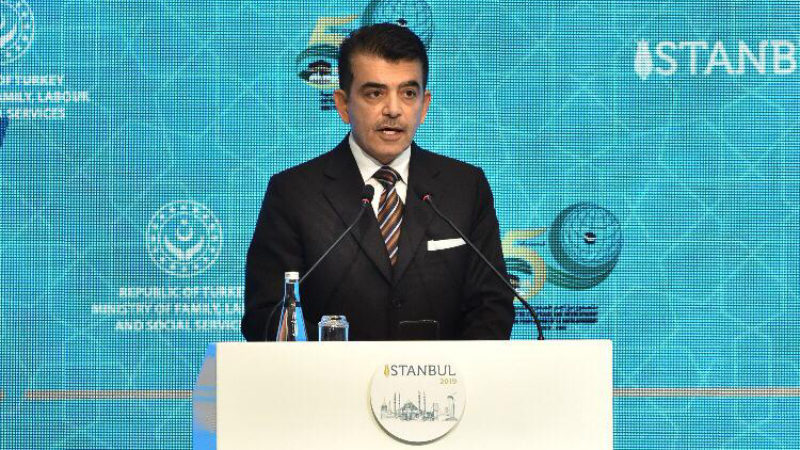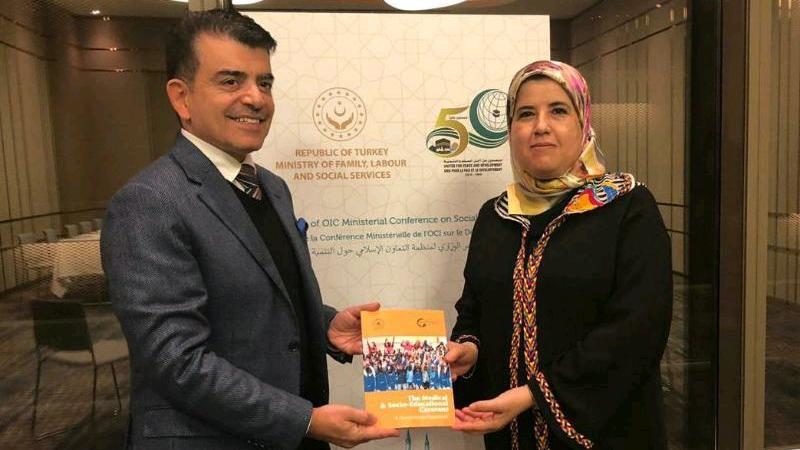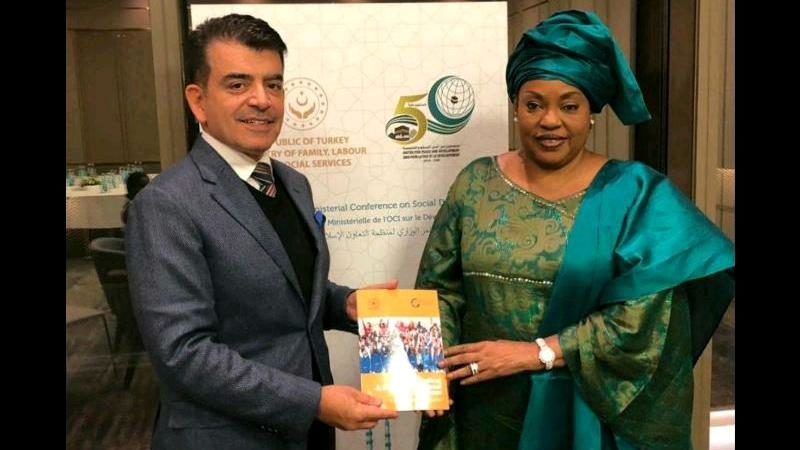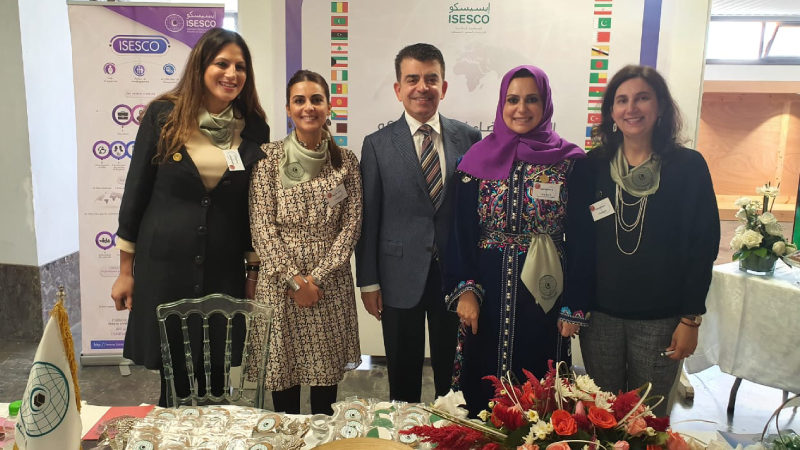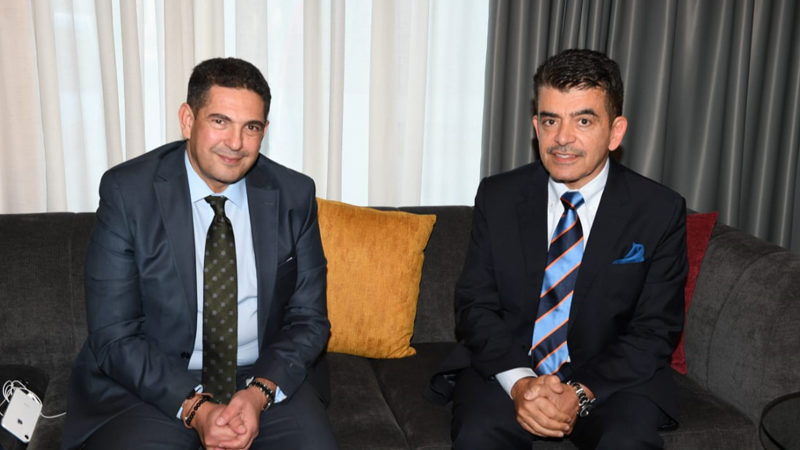The Director General of the Islamic Educational, Scientific and Cultural Organization (ISESCO), Dr. Salim M. AlMalik, examined with Dr. Rached Ghannouchi, President of the People’s Representatives Assembly of Tunisia, a number of issues related to ISESCO’s areas of action and the outstanding cooperation of the Republic of Tunisia with ISESCO in organizing many activities, including the 11th Islamic Conference of Culture Ministers and the close of the celebration of Tunis as Islamic Culture Capital for 2019.
This was part of a reception today by the President of the Assembly to ISESCO Director General and his accompanying delegation at the Assembly’s headquarters, during which Dr. AlMalik expressed ISESCO’s deep gratitude to the President, Government and people of Tunisia for their efforts to ensure the success of the 11th Islamic Conference of Culture Ministers and the celebration of Tunis as Islamic Culture Capital for 2019 during which many important activities and programmes were organized. He also stressed that the enormous efforts made by the Ministry of Cultural Affairs are an example to follow by future Islamic culture capitals to overcome their challenges.

From his part, Dr. Ghannouchi stated that ISESCO plays a pivotal role in the region and in the Islamic world as a whole in areas key to achieving development, particularly education, science and technology, wishing every success to the Organization in implementing its socially-conscious future programmes and plans.
In addition, the meeting touched on ISESCO’s new vision and action strategy for the next phase. In this regard, Dr. AlMalik reviewed a range of major programmes and projects already initiated by the Organization, most notably the waqf (endowment) project whose proceeds will go to financing ISESCO’s programmes and activities in Member States’ neediest areas to support and empower women and children. Dr. AlMalik also pointed out that, under the Organization’s new vision, studies will be carried out in the field of waqf in the Islamic world with a view to promoting and developing it.

In the same vein, Dr. Ghannouchi commended the idea of waqf and dubbed it as a practical solution to achieve ISESCO’s noble objectives. He underlined that waqf accounts for 30% of the expenditure of universities and civil society activities in Tunisia and that developed countries largely depend on it to ensure education and healthcare services to those in need.
Key among the issues discussed at the meeting are ISESCO’s efforts in the fight against extremist thought and the documents issued by the previous sessions of the Islamic Conference of Culture Ministers that constitute a cultural and intellectual approach to combat extremism and promote moderation and middle stance, as advocated by the noble religion of Islam. These documents call on Islamic countries’ legislative institutions to enact more laws to this effect.
“Extremism has severely harmed Islam and Muslims. Joint efforts have to be made to eradicate this plague”, Dr. Ghannouchi commented.
For his part, Dr. AlMalik stated that under its new vision, ISESCO endeavors to become a house of expertise for the Islamic world, hence the creation of the Center of Strategic Anticipation.

The two parties also explored the intellectual role played by ISESCO through “ISESCO Cultural Forum” which hosts renowned intellectuals from Muslim countries to discuss today’s issues and provide their suggestions and ideas.
The meeting brought together Mr. Nabil Hajji, Vice-President of the Assembly in charge of External Relations; Mr. Habib Khedhr, Head of the Cabinet of the President of the Assembly; Dr. Najib Rhiati, Director of Culture at ISESCO; Dr. Mohamed Ghemari, Director of the General Secretariat; Dr. Kais Hammami, Director of the Center of Strategic Anticipation at ISESCO; and Dr. Abdelilah Benarafa, Cultural Advisor to ISESCO Director General.

